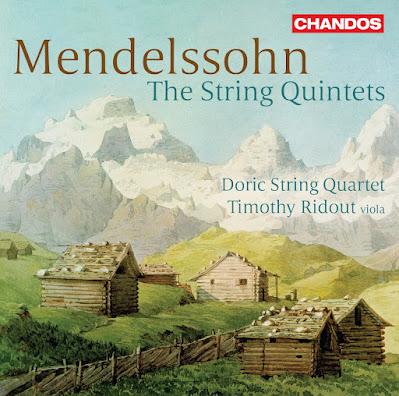 |
| Kvinnherad Church in Rosendal © Liv Øvland |
 |
| Leif Ove Andsnes & Ragnhild Gudbrandsen © Liv Øvland |
 |
| Yulianna Avdeeva, Johan Dalene & Julia Hagen © Liv Øvland |
 |
| James Baillieu & Mari Eriksmoen © Liv Øvland |
Gamle Mor (The Old Mother)
Det Første (The first thing)
Ved Rundarne (At Rondane)
Et Vennestykke (A Piece on Friendship)
Trudom (Faith)
Morgen Thau (Morning Dew)
Abschied (Farewell)
Jägerlied (Hunting Song)
Das alte Lied (The Old Story)
Wo sind sie hin? (Where have they gone?)
 |
| Members of Opus13 © Liv Øvland |
Gade, Niels (1817-1890): 4 Fantasiestücke, Op. 43 No. 3
Schumann, Robert (1810-1856): Violin Sonata No. 1 in A minor, Op. 105
Veslemøy (Veslemøy)
Blaabærli (Blueberry Slope)
Møte (The Tryst)
Elsk (Love)
Killingdans (Kidlings' Dance)
Vond Dag (Hurtful Day)
Ved Gjætle-Bekken (At the Brook)
Lyric Pieces, Op. 54 No. 6, Bell Ringing
Vaage, Knut: Skråblikk på Haugtussa (Oblique Glance at Haugtussa)
Grieg, Edvard: Intermezzo for cello and piano in A minor, EG115
Vaughan Williams, Ralph (1872-1958): Six Studies in English Folk Song
Grieg, Edvard: from Barnlige Sange, Op. 61
3. Lok (Farmyard)
6. De norske fjelde (The Norwegian Mountains)
2. Sang til juletraet (The Christmas Tree)
5. Kveldssang for Blakken (Goodnight song for Dobbin)
Schumann, Robert: Märchenbilder, Op. 113
 |
| Opus13 © Liv Øvland |
Grieg, Edvard: Andantino serioso, Op. 28 No.4
Andante con moto, EG116
Tolv Melodier (Vinjesangene), Op. 33 No. 5, Langs ei Aa (Beside the Stream)
Norwegian Dances, Op. 35 Nos. 2-3
Holberg Suite, Op. 40, Sarabande & Rigaudon
Debussy, Claude (1862-1918): Syrinx
Ravel, Maurice (1875-1937): Introduction & Allegro
Clarke, Rebecca (1886-1979): Sonata for Viola and Piano
Ravel, Maurice: 3 Poèmes de Stéphane Mallar mé
Piano Trio
Grieg, Edvard: Fem Digte af John Paulsen, Op. 26
1. Et Håb (Hope)
2. Jeg reiste en deilig Sommerkvæld (I walked one balmy summer eve)
3. De Ærgjerrige (You whispered that you loved me)
4. Med en Primula veris (The first primrose)
5. På Skogstien (Autumn thoughts)
Sex Digte af Ibsens, Op. 25
1. Spillemænd (Fiddlers)
2. En Svane (A Swan)
3. Stambogsrim (Album Lines)
4. Med en Vandlilje (With a Waterlily)
5. Borte! (Departed!)
6. En Fuglevise (A Birdsong)
String Quartet in G minor, Op. 27
 |
| Rosendal Chamber Music Festival 2025 © Nick Boston |
 |
| Rosendal Chamber Music Festival 2025 © Nick Boston |
Vierne, Louis (1870-1937): Piano Quintet, Op. 42
Nordheim, Arne (1931-2010): from Three Unexpected Songs, No.2 Ore, fermate il solo
Marini, Biagio (1594-1663): Balletto secondo, Op. 22 No. 2
Vaage, Knut: Tilstandar, 'Opp av jorda' (Spring)
Silvestrov, Valentin (b.1937): Bagatelle Op. 1 No. 2
Marais, Marin (1656-1728): Suite VII en sol majeur du Troisième Livre de pièces de viole, Prelude No. 93
Suite VI en sol majeur du Cinquième Livre de pièces de viole, Chaconne No. 83
Suite VII en sol majeur du Troisième Livre de pièces de viole, Sarabande No. 99
Suite VII en sol majeur du Troisième Livre de pièces de viole, La Guitare No. 107
Leclair, Jean-Marie (1697-1964): from Deuxième récréation de musique, Op. 8, No. 6 Chaconne
Vaage, Knut: Tilstandar, 'Hauste inn' (Autumn)
Shostakovich, Dmitri (1906-1975): Sonata for Viola and Piano, Op. 147
Scarlatti, Alessandro (1660-1725): Sinfonia di concerto grosso, No. 8 in G major
Grieg, Edvard: Romancer (ældre og nyere), Op. 39
1. Fra Monte Pincio (From Monte Pincio)
3. I Liden højt deroppe (Upon a grassy hillside)
4. Millon Roser (Among roses)
6 Digte af Holger Drachmann, Op. 49, No. 6 Forårsregn (Spring Showers)
 |
| Rosendal Chamber Music Festival 2025 © Nick Boston |
 |
| Rosendal Chamber Music Festival 2025 © Nick Boston |
Tveitt, Geirr: Femti Folkatonar frao Hardanger for klaver, Op. 150
25. The call of the dairy maid
39. Visiting Saturday in the mountains
10. What beer!
11. God's goodness and God's greatness
Duparc, Henri (1848-1933): Phidylé
Cinq mélodies, Op. 2 No. 1. Soupir
La vague et la cloche
Vaage, Knut: Tilstandar, 'kom lindereid kom' (Summer)
Mendelssohn, Felix: String Octet in E flat major, Op. 20
Vivaldi, Antonio (1678-1741):
Trio Sonata No. 12 in D minor, RV 63 'La Folia'
Andriessen, Louis (1939-2021): Workers Union
 |
| Rosendal Chamber Music Festival 2025 © Nick Boston |







